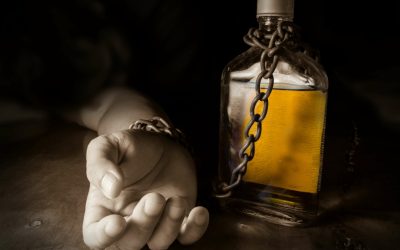Content
Spouses, children, and other loved ones are often the unintended victims of a person’s addiction and can fall into certain family roles of addiction. On the other hand, families can make a huge difference in their loved one’s recovery. Here you’ll learn why addiction is often called a family disease and how you can support your loved one in their recovery. Your family can do several things to take an active role in your recovery to help you heal. Finding resources to help educate your family on addiction and mental health issues will be the first place to start.
Many treatment centers, such as Choice House, offer addiction psychoeducation to family members close to the recovering addict. This is because addiction is often misunderstood, and people often hold inaccurate beliefs about the disease. The instruction can take place in the form of workshops, individual and group therapy, and sessions with some of the staff at the treatment center. The family will learn about the causes of addiction, triggers, and the various roles family members may take on in the family system.
How does Family Therapy for Substance Use Disorder Help Support Recovery Goals?
Our program offers support, education, and therapy to family members as they begin their own healing journey. Our educational topics include the disease concept of addiction, boundaries, healthy communication, spirituality and the recovery process. This approach, uses encouragement and motivation to inspire a family member suffering from substance use disorder to seek out addiction treatment themselves.
- When someone you care for has a drug or alcohol abuse problem, the natural reaction is to want to do whatever you can to help him or her fix the problem.
- Addiction affects entire families, not just the individuals engaging in substance misuse.
- Although the damage to families dealing with addiction can be lasting, family support is one key to Recovery for Life.
- This group focuses on teens and their family role in addiction.
- A good social support system is essential during the early stages of recovery.
The family may be encouraged to stop denying the alcohol use and supporting the drinking and begin to find avenues to reach out for help. Substance use disorder may include alcohol misuse, but it can involve misuse of other substances as well. In this stage, individual recoveries are solid and attention can be turned back to the couple and family.
Self Help and Support Groups
Those conversations could not only have a wonderful impact on a family’s spirits but also positively impact their communities. Additionally, every day, research teams are conducting in-depth studies about drugs. They’re learning more about how substances interact with the cells inside the brain, and they’re using that knowledge to develop new treatments that might one day either treat or prevent addictions.

They do their best to stay out of the way and avoid creating any additional difficulty. The lost child watches as the chaos plays out among their family members and does what they can to blend into the background. Lost children tend to be younger or middle children, already used to their older siblings taking the lead. They all but disappear amidst the tumultuous environment in their home. PsychoHairapy meets the need for a creative approach to mental health and wellness for Black girls and women. Podcast episode with Netflix documentarian on the use of psychedelics in mental health treatments.
Learn as much as possible about addiction.
In the drinking stage, the imperative might be to begin abstinence. family support in addiction recovery Alcohol use disorder focuses primarily on the misuse of alcohol.

Sana Lake Recovery Center is a Joint Commission Accredited addiction treatment program. We offer a safe and trustworthy facility for people struggling with substance abuse. This seal indicates our commitment to continually elevating our standards and providing a superior treatment for substance abuse.
Support Our Mission
Both substance use disorder and alcohol use disorder are diagnosable mental health conditions listed in the Diagnostic and Statistical Manual of Mental Disorders, 5th Edition (DSM-5). Remember to keep your expectations in check regarding your loved one’s recovery. Addiction is a chronic condition, and there’s a strong possibility that an individual will experience a relapse along the way. In fact, the National Institute on Drug Abuse estimates that the rate of relapse for addiction ranges from 40 to 60 percent. Taking care of a person in recovery is without a doubt very draining.
- There are single-parent households, blended families, multi-generational families and foster families.
- Often times just the confirmation that a person was heard will help them to feel better about themselves and create new bridges of trust and respect between you.
- Here’s a guide to symptoms, treatment options, and resources for different types of addiction.
- Furthermore, as of 2020, 13.5% of people aged 12 and older reported using an illegal drug within the past month.
- These roles apply to various relationships, including parent-child, husband-wife, sibling-sibling, and others.
